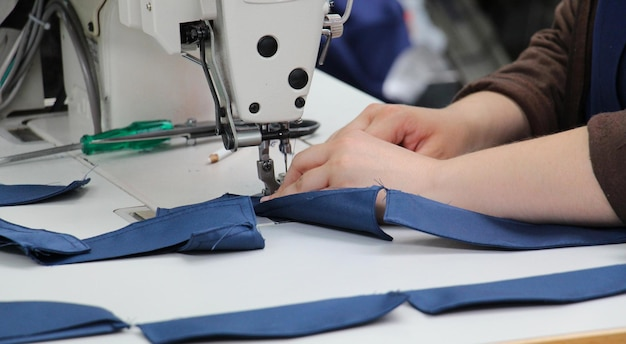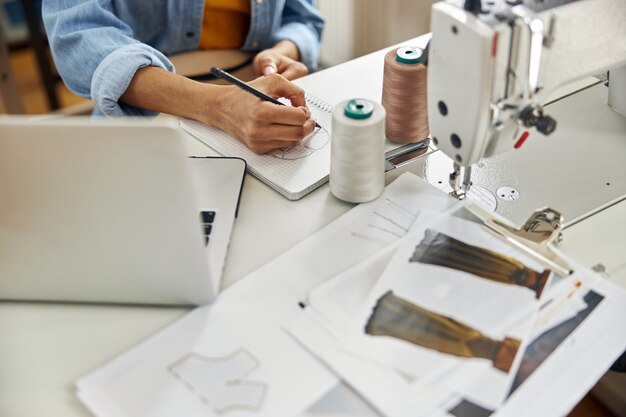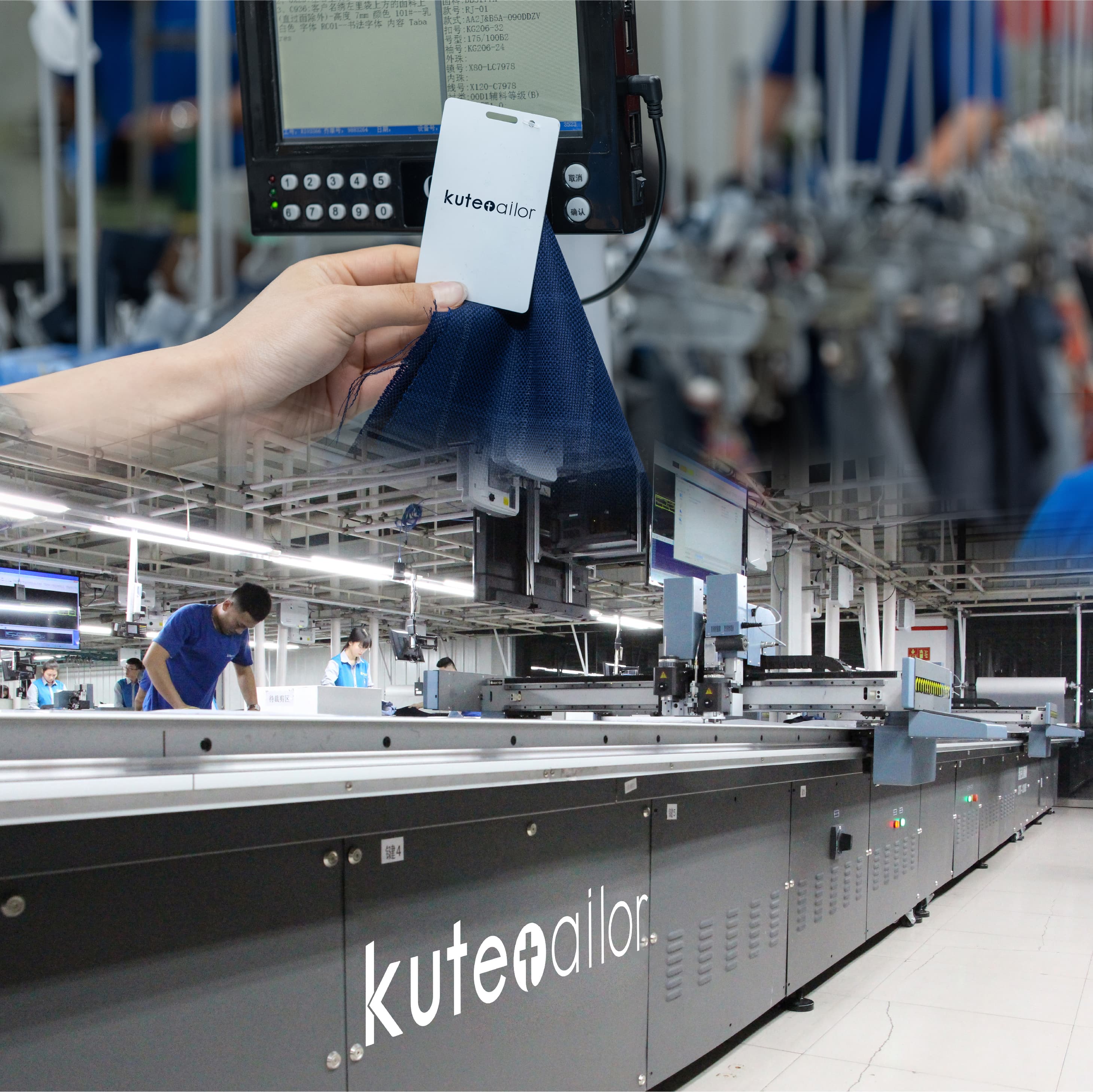
In today's highly competitive fashion industry, more than ever, the need for custom clothing manufacturing has become critical. Manufacturers of custom clothes offer a special solution that will enable brands to differentiate themselves in the marketplace, as consumers demand more personalized and high-quality products. The key features of the process of manufacturing custom clothing will be discussed herein, which enables a business or an entrepreneur to understand the process, its benefits, and challenges while working with custom manufacturers.
Custom clothing manufacturing generally refers to the process of producing clothes according to a customer's particular requirements. As opposed to mass production, which deals with standardized products, custom clothing is all about individualization. A custom manufacturer offers flexibility in new fashion lines, bespoke garments, or private label. It involves different stages, from design to pattern-making, the selection of fabrics, and stitching. It guarantees a quality, customized product that responds precisely to brand identity and consumer needs.
From design to production, custom-made clothing manufacturers often offer a range of services that can bring your fashion ideas into reality. These services might include:
· Sample Creation and Pattern-Making: Bespoke manufacturers help convert the initial design into a physical sample and pattern. They ensure the design fits into the intended aesthetic and fit.
· Fabric Selection: Based on the design requirement, manufacturers assist in choosing the best materials that will fit into both the aesthetic and functional needs.
· Full Package Production: Many custom manufacturers provide full-package services, right from trend research and design to production and logistics. This one-stop service has proved to be highly convenient, especially for those brands seeking one-stop solutions.
· Private Label Services: Besides this, the manufacturers provide private label service by manufacturing already designed garments and then allowing clients to put their own brand's labels, tags, and packing on them.

Custom clothing manufacturers take on shapes and sizes in response to varied market needs. The common ones include:
· High-End Fashion Manufacturers: It deals with high-end clothes and pays more attention to minute details, finer fabrics, and impeccable finishing. Such a house is normally preferred by top-of-the-line brands that demand exclusivity and attention to detail.
· Streetwear and Fast Fashion Manufacturers: This category of manufacturers can produce fashionable clothes in the shortest time possible. They are meant for a fast-moving fashion industry where brands can keep up with the latest trends and satisfy consumer demand as soon as possible.
· Slow Fashion Manufacturers: Corresponding to sustainable fashion, the manufacturers of slow fashion are focusing on ethical production and high-quality garments with eco-friendly material. Such manufacturers are gaining more popularity due to the rising consciousness of consumers about sustainability.
· Sportswear Manufacturers: As athleisure and activewear continue to rise in popularity, manufacturers are adapting to produce high-performance garments that meet both style and functional needs.
While cities like New York and Milan have long been considered fashion hubs, many custom clothing manufacturers are now making a significant impact in other regions, offering global reach and competitive advantages. One such example is Kutetailor, a China-based custom clothing manufacturer. By operating from China, Kutetailor takes advantage of the country’s well-established textile industry, vast manufacturing infrastructure, and cost efficiencies to provide high-quality, tailor-made apparel for fashion brands worldwide.
China has long been recognized as a key player in the global apparel manufacturing industry, thanks to its access to raw materials, experienced labor force, and advanced production technologies. In particular, Kutetailor leverages cutting-edge technology in its smart garment factory, offering a unique combination of intelligent tailoring, automated production, and a full-customization approach. This allows for fast delivery times—typically within 7-10 days—without compromising on quality. With transparent supply chains and a commitment to sustainable growth, Kutetailor ensures that each garment produced aligns with high standards, meeting the specific needs of brands while contributing to environmentally conscious practices.

One of the key advantages of working with custom clothing manufacturers is their flexibility in terms of Minimum Order Quantities (MOQ). Unlike mass-market manufacturers that require large bulk orders, custom manufacturers often cater to small businesses, startups, and brands that need smaller production runs. This makes it easier for entrepreneurs to test their designs before committing to larger production quantities.
However, custom manufacturing costs may greatly differ in the varying factors that include design complexities, qualities of materials used, and levels of customization. For this, brands should be closely working with their manufacturers over discussing transparent pricing structures, negotiating for bulk discounts, and making sure that production costs fit their budgets.
With the rising concern for sustainability in fashion, most bespoke clothing manufacturers today have shifted much focus to ethics in production methods. Sustainable manufacturing practices can save waste, conserve resources, and reduce carbon footprint. Key areas of sustainable manufacturing of custom clothes include:
· Eco-Friendly Materials: Manufacturers help brands choose fabrics made from organic, recycled, or low-impact materials that contribute to environmental conservation.
· Fair Labor Practices: Ethical manufacturers ensure safe working conditions and fair wages for workers throughout the production process.
· Customization to Reduce Waste: Custom manufacturing allows brands to avoid overproduction and excess inventory, minimizing waste typically associated with mass production.
For businesses looking to appeal to environmentally-conscious consumers, partnering with manufacturers that focus on sustainability is an effective strategy.
The right custom clothing manufacturer will play a significant role in determining the success of your brand. Following are some of the key factors that you should consider while selecting a manufacturer:
· Research and Online Platforms: Utilize platforms such as Maker’s Row or Alibaba to search for manufacturers that match your requirements. These platforms offer detailed manufacturer profiles, allowing you to compare services, pricing, and past work.
· Experience and Reputation: Look for manufacturers with a proven track record in producing high-quality garments. Check customer reviews, testimonials, and portfolios to gauge their capabilities.
· Communication and Transparency: Effective communication is vital throughout the production process. Ensure the manufacturer is responsive and provides clear, transparent updates on timelines, costs, and production status.
· Samples and Quality Control: Request samples to check the quality and fit before committing to full-scale production. Quality control should be a big concern to make sure the final product is as desired.

The manufacturing process for custom clothing involves several key stages:
1. Design and Pattern-Making: The process begins with the creation of detailed designs and technical specifications. These are then transformed into patterns that serve as blueprints for the garments.
2. Sampling and Prototyping: Samples are produced based on the patterns and designs to ensure the product meets the desired quality and fit.
3. Production: Once the samples are approved, production begins. Fabrics are cut, sewn, and assembled according to the design specifications.
4. Quality Control: Throughout the production process, stringent quality control checks are conducted to ensure that every garment meets the required standards.
5. Delivery: After passing quality checks, the finished garments are packaged and delivered to the customer.
While custom clothing manufacturing offers many benefits, it also presents certain challenges:
· Quality Control Issues: Variations in craftsmanship, fabric quality, and design details can lead to inconsistencies. Regular inspections and third-party audits can help mitigate these issues.
· Production Delays: Delays in sourcing materials, production bottlenecks, or issues with shipping can cause delays. Building buffer time into the production schedule can help reduce the impact of delays.
· Communication Barriers: Misunderstandings between the brand and manufacturer can lead to errors. Clear communication and detailed specifications are essential for a successful collaboration.
Custom clothing manufacturers are crucial in helping a brand come up with unique high-quality clothes that stand out in the market. The right manufacturer can help ensure that ideas come to life exactly as planned with the capability for scaling up production when needed. With increased awareness among consumers, pushing them toward sustainability and ethics in what they purchase, working with manufacturers who focus on these aspects will help the brand connect with the conscious consumer of today. With the right partner, custom clothing manufacturing offers endless possibilities for brand differentiation and growth.